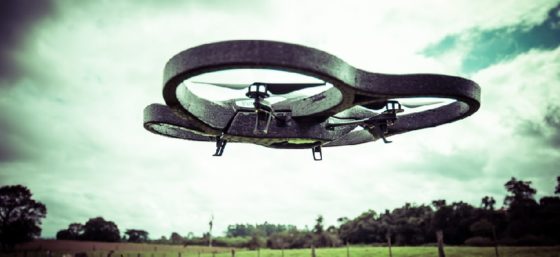UPDATE: Americans don’t have to register their drones if they’re only used for non-commercial purposes (May 19, 2017). Ignore anything below that says you have to register your drone if you only use it for fun.
Earlier this year, Arizona passed a new law regarding unmanned aircraft systems (UASs), aka drones. The purpose of this law is to prevent cities from making separate regulations. This law makes it a misdemeanor to use a drone in a way that interferes with law enforcement or fire operations. It’s a felony to use a drone to “intentionally photograph or loiter over or near a critical facility in the furtherance of any criminal offense.”
I have heard reports of drones interfering with aerial firefighting operations, causing planes to be grounded, but I have yet to hear of anyone be cited or arrested for violating this law.
On the flip side, the law is helpful to hobbyists by requiring cities with more than one park to allow drones in at least one of them. Beyond that, the law requires drone operators to comply with the Federal Aviation Administration(FAA) rules of UASs.
Rules for Flying a Drone for Fun
The FAAs rules for flying a drone as a hobbyist are pretty simple and straightforward:
- All drones over 0.55 lbs must be registered. Your drone and its cargo total weight must be under 55 lbs.
- You must always fly your drone in your unassisted visual line-of-sight (exception for prescription eyeglasses or contacts).
- You must fly your drone at an altitude that is less than 400 feet.
- Always yield the right of way to manned aircraft.
- You can’t fly a drone within 5 miles of an airport without prior notification.
I imagine some drone enthusiasts or clubs have mapped where the 5-mile radius around each Phoenix-area airport ends. Hopefully, wherever you live in Arizona, there’s a place near your home where you can fly your drone. My dog was intrigued and a little frightened when we encountered a drone-flyer at a park.
Rules for Flying a Drone for Business Purposes
The FAA’s rules for using a drone for commercial purposes are much more complicated. Here are some of the requirements that apply in addition to the rules above:
- Operators must be at least 16 years old and have a Remote Pilot Airman Certificate
- Drone operators cannot operate more than one drone simultaneously.
- The maximum permissible groundspeed is 100 mph.
- You must fly your drone during the day.
- No flying drones over people (exception for those involved in the drone operation).
- No flying drones from a moving vehicle except in sparsely populated areas.
- No carrying hazardous materials with your drone.
You can read the full summary of the FAA’s rules for commercial drone operations, including record and reporting requirements, on the FAA website. If your project requires violating these rules, you can apply for a certificate of waiver if you can demonstrate that your project can be executed safely.
More Information
If you have additional questions or want to stay up-to-date on the legalities of flying drones, check out the FAA’s UASs site or Know Before You Fly. You can also seek out a local lawyer who understands the federal and local drone rules that apply to you. If you want to connect with me, you can contact me directly or connect with me on Twitter, Facebook, YouTube, or LinkedIn. You can also get access to more exclusive content that is available only to people on my mailing list, by subscribing here.
